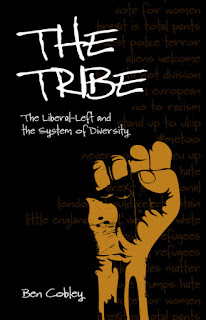Kenan Malik’s critique of identity politics – a critique
This article follows a long Twitter discussion initiated by Sandy Starr, relating Kenan Malik’s review of Eric Kaufmann’s fascinating new book Whiteshift to the debate we had on my book at the Battle of Ideas in London on 13 th October. 'The real problem, however, is not that the notion of white identity is racist but that it is meaningless.' @kenanmalik responds to @epkaufm 's #Whiteshift in @ObserverUK . Relevant to recent #BattleOfIdeas debate between @bencobley / @cricri42 / @_HelenDale . https://t.co/xs5ND6W3aF — Sandy Starr (@sandystarr0) 21 October 2018 In this thread, Kenan linked to another article of his, entitled ‘Not all Politics is Identity Politics’ a beautifully-written piece in which he presents his critique of identity politics and through which I could see some avenues to explore the differences with mine. Firstly, it’s probably worth explaining where we agree. Kenan is a critic of identity politics, and from the left. As he sa

